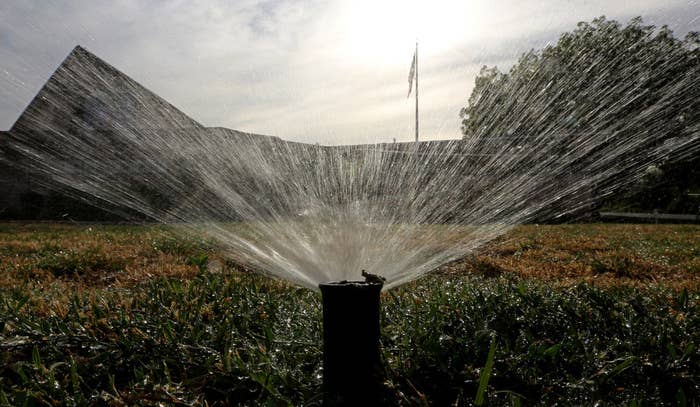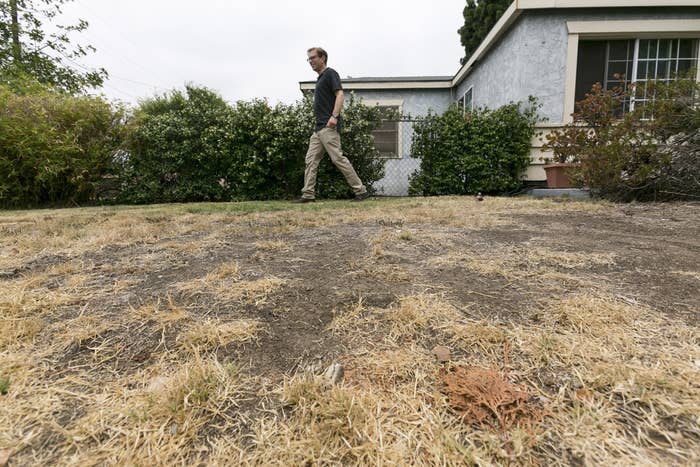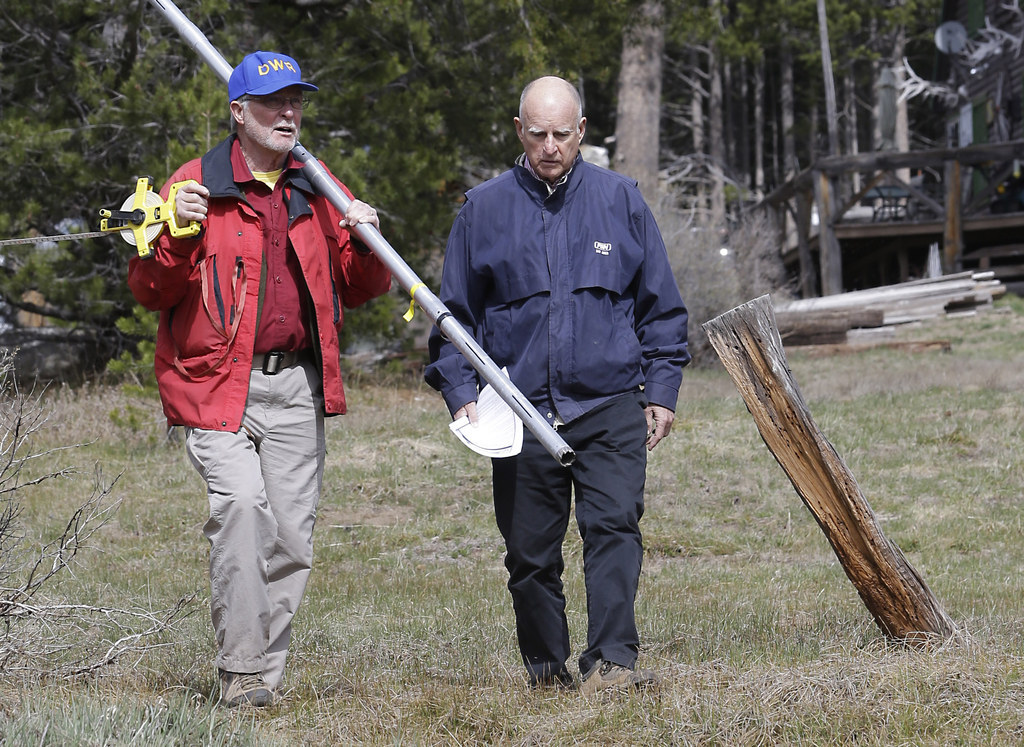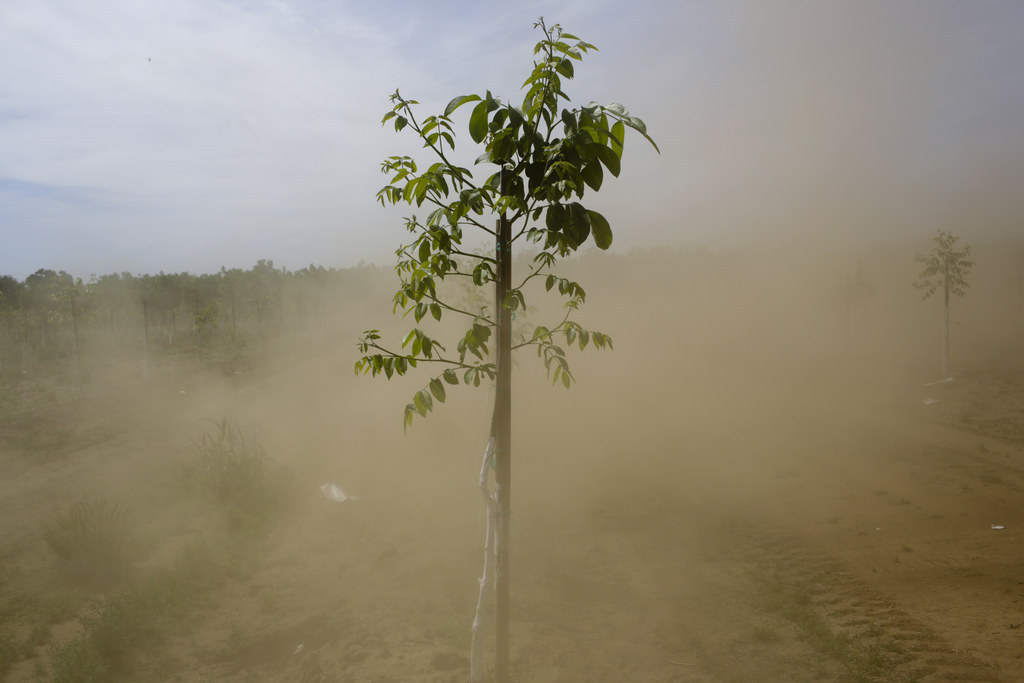
California made history Wednesday when Gov. Jerry Brown announced the state's first-ever mandatory water restrictions to deal with the historic drought.
But while the restrictions themselves have been praised, how they work and their real impact on the drought remains to be seen.
The restrictions put significant emphasis on enforcement in cities, which account for about 20% of California's water use.
HOW IT WILL WORK:
The restrictions require California's cities and towns to reduce their water use by 25%.
Actually making that happen will be the responsibility of the State Water Resources Control Board (SWRCB) — one of California's numerous agencies that manage water. The board, however, won't actually stop individual water wasters. Instead, local water districts will be accountable to the SWRCB for enforcing the new restrictions, spokesman George Kostyrko told BuzzFeed News.
If local districts don't enforce the new water restrictions, the state can issue a cease and desist order and fine them $10,000 per day.
"It would have to be a situation where we just had a water district that was just not responsive," he said.
Local agencies can fine residents $500 per day, though Kostyrko said fines for individual water users haven't widely been used in the past.
Kostyrko said the main thrust of the new regulations is to curb the use of outdoor water — so, lawns and landscaping — and that the state hopes to avoid fines by working with local authorities.

POTENTIAL CHALLENGES:
There are hundreds of local water districts in California, meaning enforcement is going to happen in a sort of patchwork. And within that patchwork, some agencies have a better track record with enforcement than others.
Ramping up enforcement also isn't free. Richard Stapler, a spokesperson for the California Natural Resources Agency, told BuzzFeed News that local districts may be able to meet the demands of increased enforcement by training existing staff. But if that isn't enough, they may have to charge more for water — meaning it could get more expensive to turn on the tap in a California home.
The other obvious challenge is that water used in cities only accounts for a minority of California's demand. So, even with major cuts in urban areas, the state's water supplies will still be strained.

Agricultural users will have to report more data under the new restrictions.
HOW IT WILL WORK:
About 80% of the water used in California is for agriculture. Under the new restrictions, agricultural users will have to prepare and submit more data about their water use. The point is to "enforce against illegal diversions and waste and unreasonable use of water," according to a statement from Brown.
Agricultural users are exempt from the requirement to reduce water use by 25%.

POTENTIAL CHALLENGES:
All of this comes as California's snow pack has fallen to an astonishingly low 5% of normal. Brown announced his new restrictions Wednesday, for example, from a grassy meadow that normally would have been buried in snow.
The snowpack waters all of California, but as the largest consumers of water in the state, farmers will likely continue to be particularly hard hit this year.
Brown's announcement notes that agricultural water users have already seen significant cutbacks in the amount of water they receive. Still, some were disappointed at the new restrictions' lack of focus on farm water. Adam Scow, director of advocacy group Food & Water Watch California, called the focus on cities "a double standard."
"It's not that we're against what's being proposed, it's that it's woefully inadequate," he told BuzzFeed News.
Scow said that water-intensive crops such as almonds and pistachios have proliferated in California's San Joaquin Valley even during the drought, and that the new restrictions would do little to curb that water.
"We probably never had the water to support that type of farming," he said.
